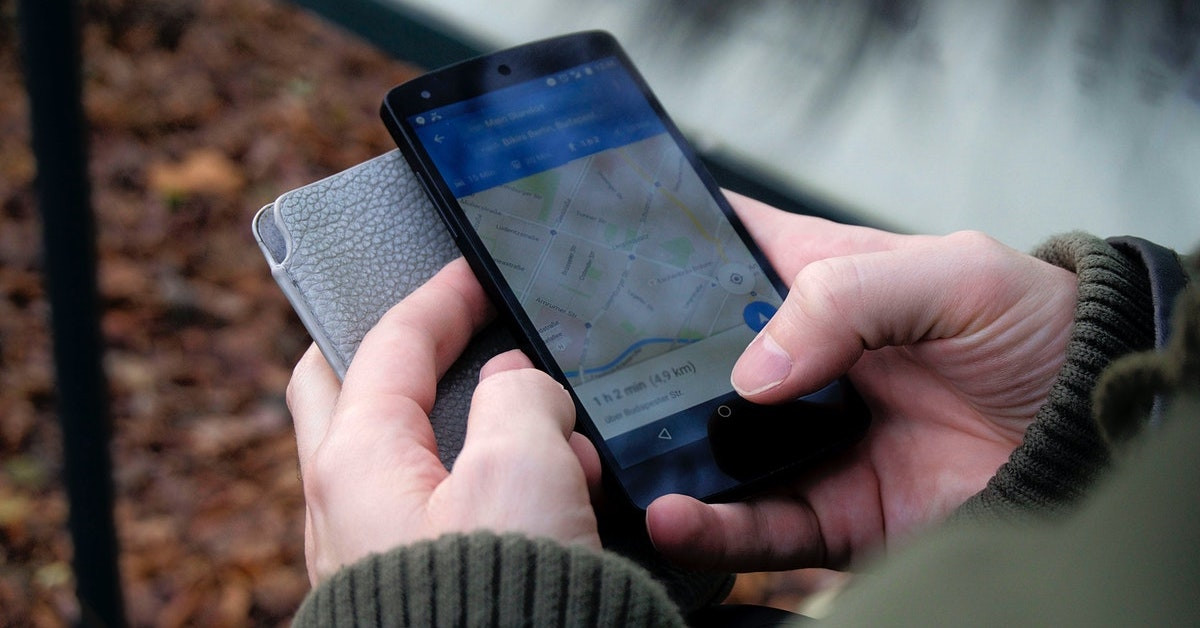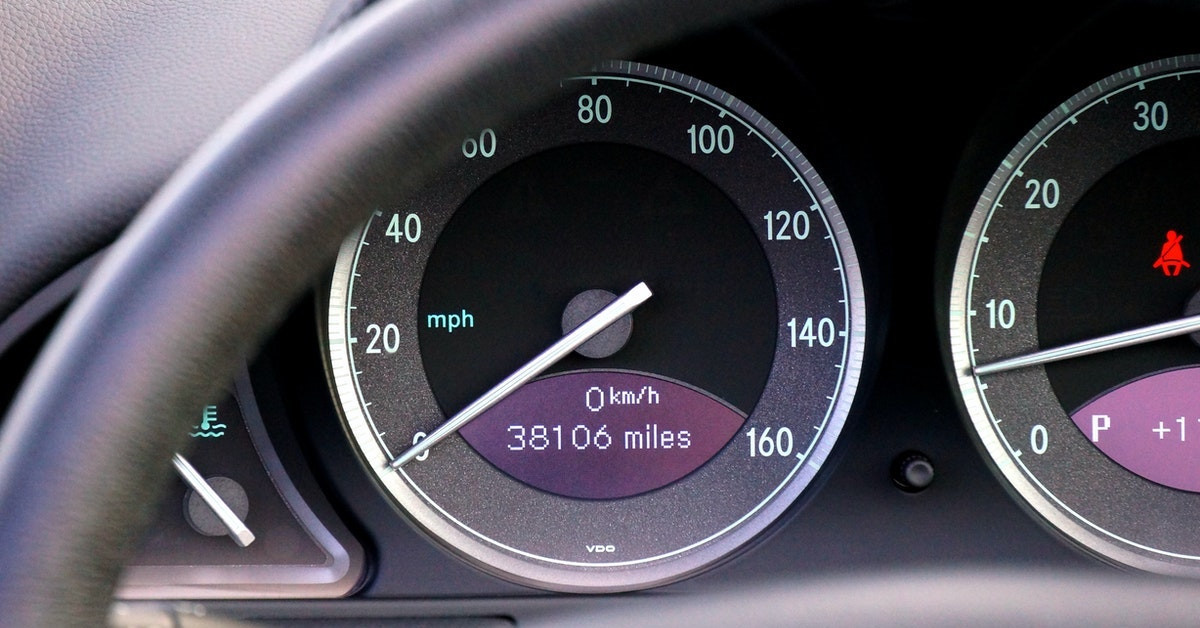Are you curious if your Health Savings Account (HSA) can help cover travel costs for medical care? Yes, your HSA can indeed be used for medical travel, offering a smart way to manage healthcare expenses, especially when exploring medical treatments in destinations like Vietnam. SIXT.VN simplifies your travel planning with comprehensive services, making medical tourism accessible and affordable. Discover eligible expenses, reimbursement processes, and maximize your HSA benefits for a seamless healthcare journey, along with medical tourism, wellness travel, and healthcare savings.
1. Understanding HSA Eligibility for Medical Travel
Can you tap into your Health Savings Account (HSA) to cover the costs of traveling for medical care? Absolutely. Using your HSA for medical travel is a savvy move, allowing you to use pre-tax funds for eligible expenses. It’s particularly beneficial when seeking medical treatments abroad, such as in Vietnam, where you can combine healthcare with a unique travel experience.
1.1. What Qualifies as Medical Travel?
Medical travel refers to journeys undertaken specifically to receive healthcare services. To qualify for HSA coverage, the primary purpose of your travel must be medical care. This means the trip should be essential for receiving treatment, rather than a vacation where you happen to see a doctor. According to the IRS, eligible medical expenses are those incurred for the diagnosis, cure, mitigation, treatment, or prevention of disease, or for the purpose of affecting any structure or function of the body.
1.2. Essential Criteria for HSA Eligibility
For your travel expenses to be HSA-eligible, they generally need to meet three key criteria: necessity, reasonableness, and eligibility.
- Necessity: The medical treatment must be essential, not merely desirable.
- Reasonableness: Transportation should be appropriate and not extravagant (e.g., avoiding private jets).
- Eligibility: The IRS must recognize the expense as qualified, as detailed in IRS Publication 502.
1.3. Common Eligible Travel Expenses
Here’s a breakdown of what the IRS typically considers eligible when it comes to medical travel expenses:
| Expense Type | Eligibility |
|---|---|
| Transportation | Rideshare apps, public transport, taxis, trains, ferries, and rental cars are generally covered. |
| Tolls | Eligible if the toll route is the only way to reach the medical facility. |
| Parking Fees | Generally covered when visiting medical facilities. |
| Fuel Costs | Reimbursable when using your personal vehicle; can be calculated using the IRS standard mileage rate. |
| Lodging | Under certain conditions, lodging expenses are allowable for a maximum of $50 per night. |
| Essential Caregiver | Travel and lodging expenses are eligible for a person who accompanies the patient if they cannot travel alone. |
1.4. Expenses That Don’t Qualify
Certain expenses are not eligible for HSA reimbursement, including:
- Vehicle maintenance, repair, or depreciation
- Personal expenses such as meals
- Auto insurance
- Penalty fees
- Any expenses not directly related to medical care
 fsa-hsa-travel-expenses
fsa-hsa-travel-expenses
2. Maximizing HSA Benefits for Medical Travel in Vietnam
Planning a medical trip to Vietnam? Using your HSA can significantly cut down on costs. SIXT.VN offers services designed to make your medical travel seamless, from airport pickups to hotel bookings.
2.1. Vietnam as a Medical Tourism Destination
Vietnam is becoming an increasingly popular destination for medical tourism due to its affordable healthcare, skilled medical professionals, and beautiful scenery. According to a report by Patients Beyond Borders, Vietnam offers potential savings of 30% to 70% on various medical procedures compared to Western countries.
2.2. Planning Your Trip with SIXT.VN
SIXT.VN specializes in providing comprehensive travel solutions for visitors to Vietnam, including those traveling for medical reasons. Our services include:
- Airport Transfers: Reliable and comfortable transportation from the airport to your hotel or medical facility.
- Hotel Bookings: A range of accommodations to suit your budget and preferences, ensuring a comfortable stay during your treatment.
- Customized Itineraries: Tailored travel plans that combine medical appointments with opportunities to explore Vietnam’s cultural and natural attractions.
- Local Support: Assistance with translation, local transportation, and other needs to ensure a stress-free experience.
2.3. Step-by-Step Guide to Claiming HSA Funds for Your Trip
Follow these steps to effectively use your HSA for medical travel expenses in Vietnam:
- Consult Your HSA Provider: Before your trip, confirm which expenses are eligible with your HSA provider.
- Document Your Medical Needs: Obtain documentation from your doctor stating the necessity of the medical treatment.
- Keep Detailed Records: Save all receipts for transportation, accommodation, and medical services.
- Submit Your Claim: File a claim with your HSA provider, including all necessary documentation.
- Reimburse Yourself: Once approved, you can reimburse yourself from your HSA.
2.4. Tips for a Smooth Medical Travel Experience
- Plan Ahead: Book your flights, accommodation, and medical appointments in advance to secure the best rates and availability.
- Travel Insurance: Consider purchasing travel insurance that covers medical emergencies and trip cancellations.
- Health Records: Bring copies of your medical records, prescriptions, and any relevant test results.
- Local Laws: Be aware of local laws and customs, particularly regarding healthcare and medication.
- Communicate Clearly: Ensure clear communication with your healthcare providers and travel support team to avoid misunderstandings.
 use-hsa-travel-expenses
use-hsa-travel-expenses
3. Detailed Look at Eligible Medical Travel Expenses
Navigating which expenses qualify for HSA reimbursement can be tricky. This section provides a comprehensive breakdown to help you maximize your benefits.
3.1. Transportation Costs
Understanding what transportation expenses are HSA-eligible can save you money on your medical trips.
| Expense | Details |
|---|---|
| Public Transport | Costs for buses, trains, and subways to get to medical appointments are typically covered. |
| Ride-Sharing Apps | Services like Uber and Grab are eligible for trips to and from medical facilities. |
| Taxi Fares | Taxi fares for medical travel are also reimbursable. |
| Rental Cars | If a rental car is necessary to reach a medical facility, the cost can be covered. |
| Mileage | When using your personal vehicle, track your miles. The IRS sets a standard mileage rate for medical travel each year. |
3.2. Accommodation Expenses
While not all lodging expenses are covered, certain situations qualify for reimbursement.
- Eligibility: You can include lodging expenses if the medical care is provided by a licensed hospital or equivalent outpatient care facility and the lodging is not lavish under the circumstances.
- Limitations: The amount you can include in medical expenses for lodging is limited to $50 for each night for each person. A person accompanying the individual receiving medical care can also claim up to $50 per night if that person’s presence is medically necessary.
- Example: If you and a caregiver stay in a hotel for five nights while receiving outpatient treatment, you can include up to $500 ($50 per night for each of you) in medical expenses.
3.3. Medical Service Costs
The costs of medical services themselves are, of course, HSA-eligible.
- Doctor Visits: Fees for consultations, examinations, and treatments are covered.
- Hospital Stays: Costs associated with inpatient care are eligible.
- Prescriptions: Medications prescribed by a doctor can be paid for with HSA funds.
- Therapy: Physical, occupational, and speech therapy are typically covered.
- Alternative Therapies: Acupuncture and chiropractic care are eligible medical expenses.
- Dental Treatment: Expenses for dental care such as preventative care, fillings, braces and dentures are covered.
 hsa-travel-expenses
hsa-travel-expenses
4. Practical Tips for Claiming Medical Travel Expenses
Successfully claiming HSA funds requires careful documentation and adherence to IRS guidelines.
4.1. Documentation is Key
Keep meticulous records to support your HSA claims.
- Receipts: Save all receipts for transportation, lodging, and medical services.
- Mileage Logs: Record the dates, destinations, and mileage for all medical-related trips.
- Medical Necessity Letter: Obtain a letter from your doctor explaining the necessity of the medical treatment and travel.
4.2. Using Your HSA Debit Card
While you can use your HSA debit card for some expenses, it’s not always possible for travel-related costs.
- Direct Payments: Use your HSA debit card for direct payments to medical providers when possible.
- Reimbursements: For expenses you can’t pay directly, save your receipts and reimburse yourself from your HSA account.
4.3. Navigating Mileage Reimbursement
To receive reimbursement for fuel costs, keep a detailed mileage log and gas receipts.
- Mileage Rate: As of January 1, 2023, the standard medical mileage rate is $0.22 per mile. It’s crucial to verify this rate with the IRS, as it may change annually.
- Calculation: Multiply your total medical miles by the standard mileage rate to determine the reimbursable amount.
- Documentation: Use tools like Google Maps or other map services to document and calculate your miles accurately.
4.4. Avoiding Common Mistakes
- Ineligible Expenses: Be sure to only claim eligible expenses as defined by the IRS.
- Lack of Documentation: Always keep detailed records and receipts to support your claims.
- Exceeding Limits: Be aware of any limits on specific expenses, such as the $50 per night limit for lodging.
5. HSA vs. FSA for Medical Travel: Key Differences
Understanding the differences between Health Savings Accounts (HSAs) and Flexible Spending Accounts (FSAs) is crucial for planning your medical travel.
5.1. Ownership and Portability
- HSA: An HSA is owned by the individual and is portable, meaning you can take it with you when you change jobs or health plans.
- FSA: An FSA is owned by the employer, and funds may not be portable if you leave your job.
5.2. Contribution Limits and Rollover
- HSA: HSAs have annual contribution limits set by the IRS, but funds can roll over year after year if not used.
- FSA: FSAs also have contribution limits, but generally, funds must be used within the plan year, or they are forfeited (“use-it-or-lose-it” rule). Some FSAs may offer a grace period or allow a small amount to be rolled over.
5.3. Eligibility Requirements
- HSA: To be eligible for an HSA, you must be enrolled in a high-deductible health plan (HDHP) and cannot be covered by other non-HDHP insurance.
- FSA: FSAs are typically available to employees who have access to employer-sponsored health plans.
5.4. Reimbursement Process
- HSA: With HSAs, you own the account, so you can use the associated debit card at more places or reimburse yourself later.
- FSA: With FSAs, you often have to gather receipts and submit them for reimbursement, as the debit card use is more limited.
 fsa-travel-reimbursement
fsa-travel-reimbursement
6. Expanding Your HSA Knowledge: Uncommon Eligible Expenses
Beyond the usual medical expenses, there are several lesser-known items and services that may qualify for HSA reimbursement.
6.1. Alternative and Complementary Medicine
- Acupuncture: Costs for acupuncture treatments can be covered with HSA funds.
- Chiropractic Care: Visits to a chiropractor for spinal adjustments and other treatments are eligible.
6.2. Specific Medical Equipment
- Guide Dogs: The costs of buying, training, and maintaining a guide dog for a visually impaired individual are eligible.
- Braille Books and Magazines: You can use your HSA to pay for the difference in cost between the regular version and the braille version.
6.3. Substance Abuse Treatment
- Drug Addiction Treatment and Counseling: This includes detoxification, counseling, and self-help groups aimed at overcoming drug addiction.
6.4. Diagnostic Tests
- Certain At-Home Test Kits: This includes fertility tests, hearing tests, and other at-home diagnostic tools.
6.5. Long-Term Care
- Nursing Home: Many types of skilled nursing facilities are eligible if the care is primarily for medical reasons.
7. HSA Ineligibilities: Expenses to Avoid
It’s equally important to know what expenses are not HSA-eligible to avoid claim denials and potential tax issues.
7.1. General Health and Wellness
- Health Club Dues: This expense is not eligible for reimbursement unless used to treat a specific medical condition.
- Weight Loss Programs: You must have a Letter of Medical Necessity (LMN) for this to be eligible.
7.2. Personal Care Items
- Diapers and Diaper Services: This service isn’t eligible for reimbursement unless used to treat a specific medical condition caused by a mental or physical disability.
7.3. Special Dietary Needs
- Special Food: You must have a Letter of Medical Necessity (LMN) for this to be eligible.
7.4. Cosmetic Procedures
- Cosmetic Surgery: Procedures aimed solely at improving appearance are generally not eligible unless medically necessary to correct a deformity related to a congenital abnormality, personal injury resulting from an accident or trauma, or disfiguring disease.
 uncommon-hsa-expenses
uncommon-hsa-expenses
8. Real-World Examples of Using HSA for Medical Travel
To illustrate the benefits of using an HSA for medical travel, here are a few scenarios.
8.1. Scenario 1: Orthopedic Surgery in Vietnam
- The Situation: John needs orthopedic surgery and finds a highly-rated facility in Vietnam offering the procedure at a lower cost than in his home country.
- The Solution: John uses his HSA to cover eligible expenses, including the surgery, flights, accommodation, and transportation to and from the hospital. He documents all expenses and submits them to his HSA provider for reimbursement.
- The Outcome: John receives the necessary medical treatment at a lower cost and uses pre-tax funds to pay for it, saving a significant amount of money.
8.2. Scenario 2: Cancer Treatment in Thailand
- The Situation: Mary is diagnosed with cancer and decides to seek innovative treatment in Thailand.
- The Solution: Mary uses her HSA to pay for eligible costs, including doctor visits, hospital stays, prescription medications, and travel expenses. Her husband accompanies her, and their lodging expenses are also covered up to $50 per night each.
- The Outcome: Mary accesses specialized cancer treatment and manages her expenses effectively by utilizing her HSA funds.
8.3. Scenario 3: Dental Work in Costa Rica
- The Situation: David needs extensive dental work and finds a reputable clinic in Costa Rica offering high-quality services at affordable prices.
- The Solution: David pays for the dental procedures, flights, and local transportation using his HSA debit card and saves all receipts for documentation.
- The Outcome: David gets the necessary dental work done without breaking the bank, thanks to the savings from medical tourism and the use of his HSA.
9. Future Trends in HSA Usage for Medical Tourism
The trend of using HSAs for medical tourism is likely to grow as more people seek affordable healthcare options globally.
9.1. Increased Awareness and Education
As more resources become available to educate consumers about the benefits of using HSAs for medical travel, more people will likely take advantage of this option.
9.2. Growing Popularity of Medical Tourism
The medical tourism industry is expected to continue growing, driven by rising healthcare costs in developed countries and the availability of high-quality, affordable medical care in destinations like Vietnam. According to a report by Research and Markets, the global medical tourism market is projected to reach $207.4 billion by 2027, growing at a CAGR of 12.8%.
9.3. Technological Advancements
Advancements in telemedicine and digital health solutions may further facilitate medical tourism, allowing patients to consult with doctors remotely and coordinate their care more efficiently.
9.4. Policy Changes
Changes in healthcare policies and regulations could also impact the use of HSAs for medical travel. For example, policies that promote greater transparency in healthcare pricing could make it easier for consumers to compare costs and make informed decisions about where to seek medical care.
10. FAQs: Navigating HSA Usage for Medical Travel
Here are some frequently asked questions to help you better understand how to use your HSA for medical travel.
- Can I use my HSA to pay for medical travel expenses for my dependent?
- Yes, you can use your HSA to pay for eligible medical travel expenses for your spouse and dependents.
- Do I need pre-approval from my HSA provider before incurring medical travel expenses?
- While pre-approval is not always required, it’s a good idea to check with your HSA provider to confirm which expenses are eligible and to understand the reimbursement process.
- Can I use my HSA to pay for medical travel expenses if I am also covered by Medicare?
- If you are enrolled in Medicare, you can no longer contribute to an HSA, but you can still use funds already in your HSA to pay for eligible medical expenses, including medical travel.
- What happens if I use my HSA funds for non-eligible expenses?
- If you use your HSA funds for non-eligible expenses, the amount will be subject to income tax and a 20% penalty.
- Can I use my HSA to pay for medical expenses incurred in a foreign country?
- Yes, you can use your HSA to pay for eligible medical expenses incurred in a foreign country, as long as the expenses meet the IRS’s requirements.
- How do I prove that my travel was primarily for medical reasons?
- To prove that your travel was primarily for medical reasons, you should obtain a letter from your doctor stating the necessity of the medical treatment and keep detailed records of your medical appointments and treatments.
- Can I include the cost of meals in my medical travel expenses?
- Generally, the cost of meals is not eligible for HSA reimbursement unless it is part of a hospital stay or included in the cost of medical treatment.
- Can I use my HSA to pay for transportation costs for visiting a sick relative in the hospital?
- No, transportation costs for visiting a sick relative are generally not eligible for HSA reimbursement unless you are providing necessary medical care to the individual.
- What is the deadline for submitting HSA claims for medical travel expenses?
- The deadline for submitting HSA claims varies depending on your HSA provider. Contact your provider for specific information regarding claim deadlines.
- Where can I find more information about HSA eligibility requirements and guidelines?
- You can find more information about HSA eligibility requirements and guidelines on the IRS website and in IRS Publication 502, as well as from your HSA provider.
Traveling for medical reasons can be a significant expense, but with careful planning and knowledge of HSA eligibility, you can effectively manage your healthcare costs. SIXT.VN is here to assist you in planning a seamless and affordable medical journey to Vietnam. Contact us today to learn more about our services and how we can help you make the most of your HSA benefits.
Address: 260 Cau Giay, Hanoi, Vietnam
Hotline/Whatsapp: +84 986 244 358
Website: SIXT.VN
Using your Health Savings Account (HSA) for medical travel is a smart way to lower your out-of-pocket costs using pre-tax funds. Ensure you are getting the most out of your tax-advantaged accounts. If you travel for medical reasons and don’t use your HSA, you could be missing out on major savings. Plan your healthcare journey with SIXT.VN and experience seamless, affordable, and reliable travel services. Medical expenses, health savings, and travel costs are manageable with SIXT.VN.



